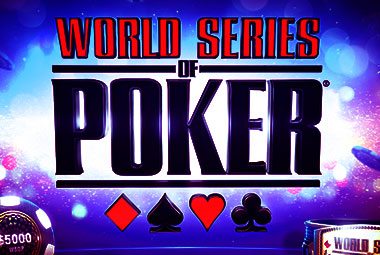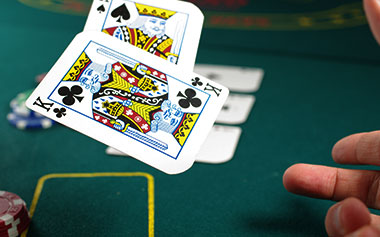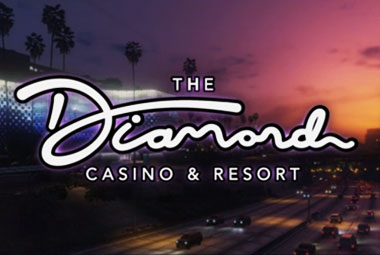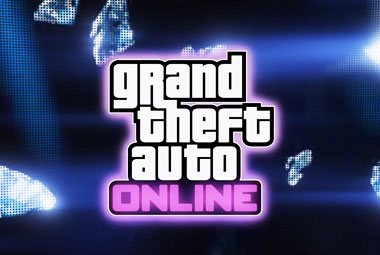Introduction
For those unaware of the term, “Gamblification,” simply refers to incorporation of gambling elements to places where they might otherwise not be, or to put outright gambling-type games in unexpected places.
The most common form of Gamblification is in games directly related to gambling. There are any number of these available, and I have discussed a few previously.
That article spent a few paragraphs looking at one of the more popular apps and/or Facebook games of that nature, MyVegas, in which real life rewards can actually be earned. Since the advent of MyVegas, there has been a rapid proliferation in gambling-related Facebook games, phone apps and other forms of media that simulate gambling.
One example is the Facebook and/or phone app Quick Hits Slots, which allows a player to play a number of slot titles. In this game, players may select from a certain amount of games as well as participate in tournaments against other players to come in the top three in winnings (credits) over a period of fifteen minutes. These tournaments basically run constantly.

In addition to potential ad revenue, these and other types of games, such as World Series of Poker, can also make money by way of the purchase of chips/credits. In the case of Quick Hits slots, these purchases (as well as the game itself) do not seem to lead to any potential for real life rewards. The amount of credits rewarded in a tournament, for example, is generally really small compared to the amount won (and spun) throughout the course of the tournament. The only real reward for gaining levels (which happens based upon total amount of credits spun) is that the player gets to unlock new machine types.
The goal, of course, is to compel players to continue playing (and hopefully, if you’re the game owner, for the player to purchase credits) in order to advance levels and have enough chips to be able to spin high enough for a better chance of winning the tournament. For those who wish to play for free, daily rewards will give the player a small sum of credits and there is also a bonus wheel that comes up periodically which awards a paltry sum of credits. A player can either play these right away, (and more often than not lose all credits within minutes) or save up credits in the hopes of spinning at a greater bet to increase the probability of placing in the top three in a tournament.
The poker, on the other hand, is at least somewhat skill-based. If a player is patient enough, and a decent enough poker player (as well as playing in stakes appropriate for the bankroll) that player will not necessarily ever run out of, ‘Money.’ I believe there are also events, I know of at least one, that can lead to a real life entry into a poker tournament.
If nothing else, hopefully these games will teach gamblers that, ultimately, you cannot win on slot machines playing straight up unless you are at some kind of advantage. Speaking only for myself, playing these games with the free credits makes me LESS likely to play these slot titles for actual money...not that I was very likely to do so in the first place.
Other Forms of Gamblification
Gamblification can also be found in other mediums that do not expressly seem to have anything to do with gambling. One example is the phone/computer app, Empires and Puzzles, which is a game that I personally enjoy, though I don’t spend any money on the game.
Empires and Puzzles consists of a few main gameplay forms, which I will highlight briefly:
1.) Alliances: Players may join an alliance with as many as 29 other players. The two main forms of gameplay relevant to Alliances are Alliance Wars and fighting Titans. There is a Titan that the Alliance must fight daily, and as Titans of a given level are defeated, the Alliance eventually advances to fighting tougher Titans. The difficulty of a Titan is indicated by star level. If the Alliance loses to a Titan, which is known as an, ‘Escape,” then the Alliance will drop to the star level below the Titan that has escaped.
The second thing Alliances do together is Alliance Wars, in which, twice a week, they will go to War against another Alliance. Each member of an Alliance who is not opted out of war will set up a defense team and then make as many as six attacks against the opposing team.
Finally, there is a chat room for each individual Alliance, which is mainly used for discussing War and game strategies.
2.) Raids/Raid Tournaments: Raids and Raid tournaments are fairly similar, except raids can be executed anytime a player has, “Raid flags.” Raid Tournaments generally take place weekly and a player may no longer continue in the tournament after four losses (in as many as twenty total battles) unless the player spends gems.
3.) Quests/World Maps: There are two world maps consisting of Seasons 1 & 2 in which the player can use, “World Energy Flasks,” in order to beat levels, advance in the game and earn different kinds of materials. This also continues the, “Story,” of the game, to the extent that the game can be said to have a story.
Quests are pretty similar to World Map, with the main difference being that different kinds of quests pop up periodically and may lead to different (and specified) types of rewards.

Where Does Gamblification Come Into Play?
The primary resource of the game is, “Gems,” which can be used to purchase different items in the shop. Gems may also be used to get new heroes for your team, this is known as, “Pulling,” a hero. Gems are awarded pretty sparingly by way of in game quests, rewards for killing monsters, titans, other heroes in raids (raid chests) and basically for doing anything in the game. Gems may also be awarded for watching ads, which are known as, “Mystic Vision.”
Naturally, these gems may also be purchased, on direct, using cash. Making a cash purchase of gems is obviously the quickest way to acquire them and there are several players who claim to have spent as much as several hundred, or even thousands of dollars, on these gems...for a phone game.
The main purpose of gems is to purchase new heroes for your team. There are five levels of heroes, from weakest to strongest, Common, Uncommon, Rare, Epic and Legendary. Common and Uncommon heroes are both regularly rewarded for doing quests and world map missions. There is also a free daily summon that will enable a player to get a Common, Uncommon (or rarely) a Rare Hero. Epic and Legendary (4* and 5* heroes) generally come from either events, Elemental Summons (you can guarantee the element/color of a hero) or from Event Summons.
The game has recently added a, “Hero of the Month,” concept, which is a hero that can be awarded as a, “Bonus Draw,” anytime one pulls an Epic, Elemental or Event hero.
Where gamblification comes into play, particularly for those who choose to make gem purchases with cash, (I don’t) is that there is no way to guarantee that a player will receive a specific hero. The game uses this fact to its advantage as players, particularly high-level ones, will want to acquire a specific hero.
I will give the game credit in that the Summons areas state the probability of receiving certain levels of heroes (or troops for the tropp summon) as well as the probability of receiving the Hero of the Month bonus draw. This does nothing to guarantee a specific hero, but it does expressly give players the probability of what level heroes they might draw from a particular summon.
Once a hero is drawn, players will level that hero up in order to give the hero more attack, defense and health; as well as to increase that hero’s special ability. Once a hero reaches a certain plateau, that hero will need, “Ascension Items,” to get to the next level. Therefore, it’s not necessarily enough to simply have a hero, you will also need the items to ascend that hero in order to unlock its full capabilities.
On rare occasion, the game will offer the ability to purchase these items directly using either cash or gems. For the most part, these items will be randomly obtained as rewards for doing the various aforementioned things in the game. Of course, when you are sitting on a bunch of heroes all needing the same Ascension items (for example, ALL Epic and Legendary Heroes WILL need fine gloves and a compass, at some point) and you don’t have said items, making a purchase becomes much more alluring.
Overall, it’s a fun game that I highly recommend if you don’t mind, “Grinding it out,” and have the discipline not to make any purchases. Or, if you have the money and don’t mind spending it on a phone game, go ahead and purchase gems...it supplements me continuing to play for free, anyway. People who play for free, known as F2P players, will eventually be able to build up strong teams...it just takes longer.

The Diamond Casino
The Diamond Casino and Resort is a recent introduction to the massively popular game, Grand Theft Auto V. While the game was released back in 2013, it has a massively dedicated online following and updates for the online version of the game continue to be release.
The Diamond Casino and Resort is the most recent update to the game, though its existence was teased from the very inception. There was always a large building in the game that said, “Casino Opening Soon,” but after over five years with no casino, it became regarded as something of a tease.
From the Rockstar Games website, the opening paragraph announcing the casino sounds like an advertisement for an actual casino.
Today marks the grand opening of The Diamond Casino & Resort, a sprawling entertainment and luxury living complex conveniently located in Vinewood and open to all citizens of Southern San Andreas. At the heart and soul of The Diamond is your enjoyment, whether you’re meeting with friends for an array of activities or finding peace of mind in your personal Penthouse Spa, The Diamond is here to spoil you.
Come play. Come party. Come experience.
It even has a casino-sounding tagline! The whole thing sounds like it was taken from the website of a Vegas Strip casino!
In addition to the casino itself, there have been a number of online missions added to the game that are relevant to the casino. The game has even went as far as to create a website just for the casino, which can be found here.
Of course, the game (satirical in all things) also takes its time to poke fun at the nature of casinos:
Here, your dreams are reality, and your reality is a dream. Here, every whim can be satisfied, every fantasy fulfilled – no impulse control, no windows, no clocks, and no clearly labelled exits. Welcome to the Diamond standard.
The rest of the page consists of equally funny material.
Both daily passes and VIP passes are available for the casino, which requires the use of in-game cash. In game cash can also be used to purchase additional chips. Where the gamblification comes into play is that in-game cash can be purchased using, you guessed it, actual real world money.
Interestingly enough, GTA V is actually something of a pioneer when it comes to responsible gambling, even though it’s not actually real gambling. A few highlights from this BBC article include:
- In countries where gambling is expressly illegal, GTA has blocked off the table games and slots, though players are still allowed to go into the casino.
- The chips that are purchased (or won) may not be converted back to real life currency by any means whatsoever. They can be used to play the games and purchase items unique to the casino.
- There is a limit on the amount of chips that a player may purchase, per hour, using the in-game cash. This is actually a concept that has been suggested for online gambling, (in general) with daily, weekly or monthly limits. This was also once the policy in the State of Missouri, which only permitted a player to gamble a certain amount per day, once upon a time.
Anyway, this is all pretty interesting because GTA V is actually promoting responsible gambling practices...in a completely fake casino. Granted, players are still able to purchase in-game currency with real world cash, then use the in-game currency to buy chips, but GTA seems to be taking an active stance in limiting how much in chips a player can get within a certain timeframe.

The Bottom Line
Looking through the app store of your mobile device (or computer) will reveal no shortage of results for a search of, “Gambling Games,” almost all of which will also say, “In-App purchases,” if you are using an iOs device.
In addition to these types of games, there are also games such as Empires & Puzzles with what I will term, “Hidden Gamblification,” in which there are elements of chance involved that can relate back to a purchase. I suspect that it is unlikely that any gambling-related laws will come into place regarding these games with an obvious element of chance, this despite the fact that both GTA V as well as Empires & Puzzles can be played by minors. For Empires & Puzzles, the minimum age to play is thirteen, according to the Terms of Service.
Minors are also explicitly permitted to make purchases on the game provided they have the permission, or alleged permission, of a parent. Even then, prepaid debit/credit cards could also be used for purchases, so it doesn’t necessarily have to come from a parent. I also believe that Apple Pay funds can be used for in-game purchases of gems, and those can be acquired by way of loadable cards that can be found at any grocery store.
There’s only one notable difference between gamblification and gambling, and that difference would be that the money only goes one way in the case of gamblification. Nothing that a player can do on Empires & Puzzles, at least not directly, is going to result in any money coming back to that player. There’s a certain irony to this as, if there were the potential for any money to come back to the player, it would absolutely become online gambling and would be subject to any relevant age laws and other regulatory gambling laws.
Because the player cannot win any money, even on those games that can be found with a search term such as, “Gambling game,” they are not regulated as such. This is true despite the fact that, as I stated in the related article, the player can only lose (excuse me, I meant to say, ‘Spend’) money.
Do you play any phone app games that have something of a gambling element that you think should be mentioned? Do you think gamblification type games should be more tightly regulated? How do you feel about these types of games, in general? Feel free to leave a comment!
Comments
>the opening paragraph announcing the casino sounds like an advertisement for an actual casino.
Yes, I stumbled on to the news about this somehow and wasted some time trying to figure out where the damned place was, etc. It wasn't easy to determine what it really was, enough that I'm glad to see you confirm it.
I've noticed we live in a time where a lot of things do not get explained to the uninitiated, you're just supposed to know already. Sometimes it's quite foolish, it can be some outfit trying to sell you something, but they won't explain themselves enough to really get you in the door - as we used to say back in my day.
Yeah, there was plenty of news about it! The BBC even picked it up, but I'm really not sure what the big deal is supposed to be about a video game with optional purchases having a gambling component.
There was an old Sega Genesis game called, "Caesars Palace," that would see a would-be player having to pay actual money (you had to purchase the game!) for fake gambling, so gambling in video games is far from a new concept. That's actually where I first learned about any gambling games other than card games and home poker variants!
https://gamefaqs.gamespot.com/genesis/915983-caesars-palace
I've noticed that trend, too. Maybe they just think it's better to get ten people (just throwing a number out there) quickly and cheaply than to work for fifteen people.
Money IS being made...somewhere. Drop boxes. skill based tournament bars (sort of a Dave and Busters for teams of experienced players).
I think back to that woman in New York who eons ago sought a particular sum of virtual gold good only in a certain video game. Via the internet a man showed up at her apartment and enjoyed the use of her body in return for his transferring the virtual gold to her game account. Ministers moralized about it but a lot of businessmen monetized it.
Rock and Roll is out. Its now: Sex, drugs and Gambling. Virtual sex, virtual drugs and virtual gambling.
Well put, Fleastiff!
I imagine sociologists and historians could have endless discussions about the role gambling in American life. Certainly there is a difference in opportunities for entertainment between pre-highway days and now, but foot races were a frequent pass time..
Grub staking a prospector was a form of gambling. Faro was hugely popular. The LA Times company was won in a poker game, Everyone knew 'looking for Skinny Dugan' meant 'looking for a craps game'
'
You'd have to go farther back than American history as the Bible makes a few references to gambling here and there. Biribi is a game predating Roulette, sources differ on whether Biribi was originally French of Italian. What is undisputed is the game was played in the mid 18th century. Keno has come to us by way of China and is a derivative game of a derivative game of a derivative game which likely goes back a dozen or more centuries until you get to the original game.
I tend to think there is an innate fascination with the concept of randomness just because so much else is easily explained. A cause has an effect, but randomness is the closest thing that we can get to an effect without a cause. Certainly the ball hits a pocket because it was spun around the Roulette wheel, but it would take an exhaustive physical analysis to break down even a single spin...assuming it can be done at all.
There's also the greed aspect in some cases, of course, Biribi was well-known for the act of cheating by its operators. Volumes have been written by Scarne, Richard Marcus and others just on the various mechanisms by which cheating can be accomplished. There is also the, "Money won is sweeter than money earned," aspect; by necessity.
Just to make GTA's Diamond Casino look a bit more sketchy, it appears that the game's NPC's -- Non-Player Characters -- are doing much better than the human players! An article explains that the NPC's (shillbots?) win at a much greater rate than the players, and their wins are for much more.
I don't play GTA. I wonder if they have a virtual gaming commission one could call! ;P
Here's the URL for the article: www.pcgamer.com/gta-onlines-slot-machines-are-rigged-and-the-npcs-are-winning-all-the-damn-money/
I'm also curious if they back-room a character if he wins too much. That actually might make for a fun game feature.
Joeman,
Very nice! I tend to wonder if they have NPC shills as a nod to the old days of actual casinos? The thing about GTA V is that it is a shoot-em-up game on the surface, as basic as can be, but is actually very intelligently satirical of other aspects of society in other ways. It's a good bit deeper than some people think.
I don't know about backrooming, but I do know that the online mode includes casino-specific missions that likely involve killing people at the casino's behest. I guess the goal is to go back to what 86'ing originally meant!



